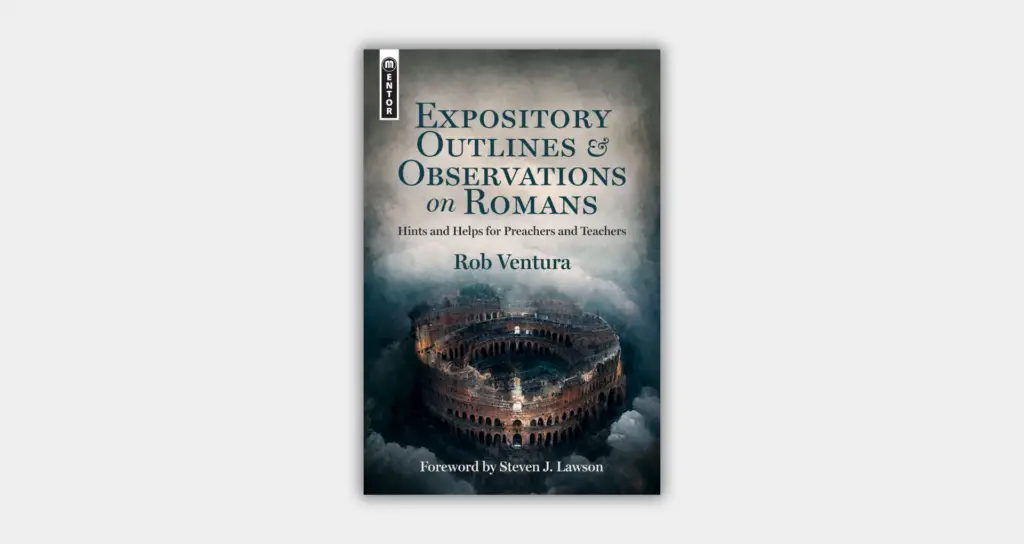Rob Ventura has recently released a new book, Expository Outlines & Observations on Romans: Hints and Helps for Preachers and Teachers, published by Christian Focus. Ventura serves as one of the pastors of Grace Community Baptist Church of North Providence, Rhode Island. He is a coauthor of A Portrait of Paul and Spiritual Warfare, and is the general editor of Going Beyond the Five Points, Covenant Theology, and A New Exposition of The London Baptist Confession of Faith of 1689. He has also contributed articles to journals, periodicals, and The Reformation Heritage KJV Study Bible.
The book of Romans is undoubtedly one of the most theologically-rich portions of scripture, but it certainly hasn’t lacked for scholarly attention. Romans commentaries abound, and many of them are good ones (e.g., Calvin, Haldane, or, more recently, Schreiner and Moo). Ventura agrees, writing in the preface that the book of Romans is a “well-served letter.” Given the state of scholarship on Romans, one might justly ask, “Do we really need another commentary?” I certainly did.
I’m happy to report that I found Ventura’s contribution to Pauline studies to be accessible, helpful, and pastorally-profitable.
First, Ventura’s volume is accessible. That is, it is simply laid out. He breaks down Romans into sections of text that serve as exegetical units. The book begins with examining Romans 1:1, then 1:2-7, then 1:8-15, and so on. His sections are logical, and make for easy reference for someone who needs to jump into the volume. His formatting isn’t dense, which too often typifies scholarly works.
Indeed, each section contains his analysis of the block of text, including: the text’s general theme, a suggested homiletical outline of the verses, a summary of the section, a list of exegetical and practical insights/observations, and even suggested application points for both believers and unbelievers. I found Ventura’s comments to be insightful, pastorally-sensitive, theologically-informed, and academically-aware.
Also worthy of note, Ventura provides his own curated list of the “Top 30 Evangelical Commentaries for Preaching Through Romans.” Those who are just beginning their study of Paul’s greatest letter will surely be helped by such a list.
The main question for a pastor or layman reading this review might be, “so where does Ventura fit in among the other good commentaries?” I think this volume will be a helpful addition for both the pastor and the layman. For the pastor, Ventura’s volume will help serve as an entry point into the text of Romans, as well as a pastoral supplement. By that I mean, Ventura’s work is good for priming the homiletical pump, getting you thinking about the best ways to break up the text for preaching. But more than a mere sermon outline, Ventura’s volume will help you think through doctrinal and exegetical considerations, while also providing pastorally-helpful application points, an area in which so many modern scholarly commentaries are anemic. There are citations for further study in the scholarly texts, for those that want them; but the body of the book isn’t cluttered by unnecessary distractions.
Because of his accessible writing style combined with practical application, Ventura’s volume will also be helpful for the layman or bible study teacher. Unlike the more scholarly modern commentaries, this text isn’t daunting and the prose isn’t impenetrable. Further, he provides quotes and citations to some of the best insights in church history (e.g., Church Fathers, Reformers, and other commentators like John Murray), which will aid bible teachers and students alike.
I’m glad to have this volume in my library, and heartily commend it to you. If I get the chance to teach through Romans one day, it will be on the top of my stack of commentaries.























